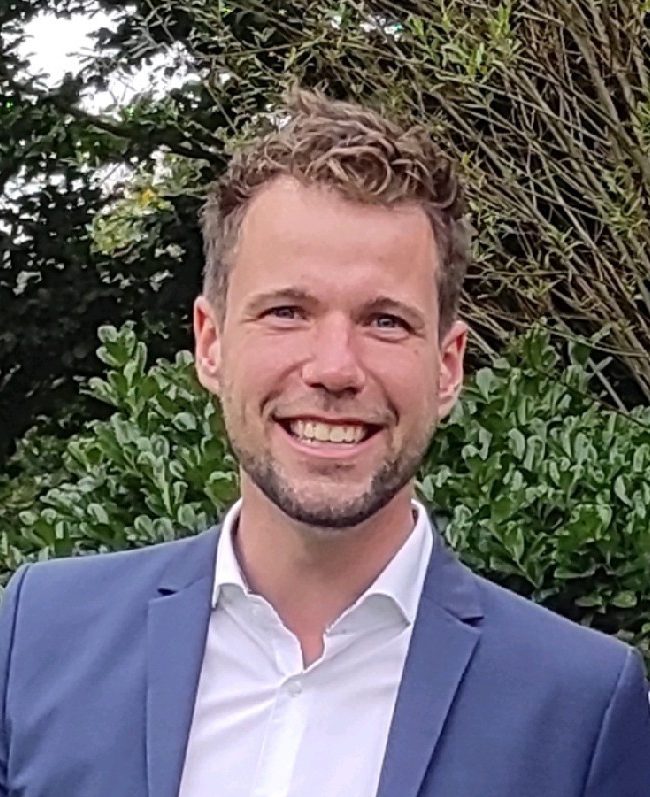How can data science be used to benefit society? And how do you create awareness of the need for this?
Thursday, Nov. 14, these questions took center stage, at the Pipple Benefit Symposium: Data Science with a Purpose. CSOs often have a very limited budget to hire data science expertise, when the opportunities are many. The goal of this day: to connect people with the opportunities that data science offers for social purposes, and to show creative ways how you can still deploy it on a limited budget.
Data Science in Healthcare
With both speakers and attendees from different sectors, these topics were highlighted from multiple perspectives. For example, Esther de Vries, Data Science coordinator at the Jeroen Bosch Hospital, talks about how data science in healthcare can help make it more efficient, but most importantly, more personal. Indeed, in healthcare, averages are often assumed, with no consideration of extreme cases. As a result, patients with rare diseases may be overlooked, with the result that their symptoms do not lead directly to a correct diagnosis. Using data science in the right way will help respond to this and better serve these patients as well.
Further, the picture in healthcare has shifted. The focus used to be on the disease rather than the person behind the disease. Nowadays, it is increasingly common to assume the model of positive health. In addition to physical well-being, a person’s participation in society, mental status, sense of purpose, quality of life and daily functioning must also be included. In other words, it is no longer about averages, but about the individual. Appropriate application of data science can support and facilitate this change.
The electronic health record (EHR), which contains a wealth of data, is very important for effective application of data science. Doctors, however, mostly put this in as the old paper record and use many different terms for the same concept. Also, the system in which the EHR resides can vary from hospital to hospital, making analysis very difficult. Therefore, care reporting should be standardized: every physician should write down patient information in the same way.
Renewal or improvement?
Handling data in a different way is not only useful in healthcare; it is also important for companies in other sectors. Rob Adams, founder and Chief Expedition Officer of Six Fingers, says that extreme cases in particular are very interesting when it comes to innovation. As a company, you have to distinguish between innovation and improvement. Do you want to improve? Then set yourself a goal to work as efficiently as possible. Do you want to innovate? You only achieve this by going on an expedition: prioritize investing in learning and put aside your fear of the unknown.
Data science for humanitarian aid
To show how data science can concretely contribute to humanitarian relief, Maarten van der Veen, founder and strategic lead of 510 (the data initiative of the Netherlands Red Cross) gives some practical examples. After flooding in St. Maarten, the use of drones allowed better estimation of the help needed. The drones took aerial photos of the affected area, allowing algorithms to record the number of homes destroyed. This allowed appropriate assistance to be provided more quickly to those most affected, and reduced the impact of the disaster.
What can I do myself?
If you have now become enthusiastic, then of course the next question comes up: How? As a commercial company, how can you contribute in socially relevant projects even if you have little time to do so? This discusses Erlijn Linskens, Data Scientist and lead Purpose at Pipple. At Pipple, students work on nonprofit projects, supported by permanent employees in the office. This allows a student to give full attention to the project, and allows the experienced staff to guide and advise with the student. So Erlijn concludes with three helpful tips:
- Where there is a will, there is a way.
- At your company, look at what is already happening in terms of activities that a nonprofit would also benefit from.
- Just get started! If working for nonprofits is something you love, that’s the only way.
Understanding algorithms
Jack van Wijk, professor at TU/e, asks an important question in the final presentation of the day. In the future, is it best to replace the human component in auxiliary processes with algorithms? That way, the care or assistance will be optimal, efficient and eliminate human error, right? Nothing could be further from the truth. With a hilarious example about a wrongful traffic fine, he makes it clear that algorithms can also easily go wrong. Now this is a harmless example, but of course if this happens to a robot in a hospital during surgery, the result could be a lot more serious.
Today’s lesson
So data, artificial intelligence and algorithms can help, but we must never forget the human factor in this process! The lesson of the day, then, is that data and humans must work together to help society improve or innovate processes. And your company can also actively contribute to this: all you have to do is start!

